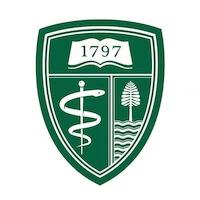Biomedical Data Science Grand Rounds with Senthil Girimurugan, M.S., Ph.D.
Talk title: "Discussion on Wavelet Based Data Analysis in Bioinformatics and Image Processing"
Please join us for our monthly Biomedical Data Science Grand Rounds
with Senthil “BeeJay” Girimurugan, M.S., Ph.D., Assistant Professor of
Mathematics, Florida Gulf Coast University on Thursday, October 25 at
12:30pm in Auditorium H (DHMC).
Talk title: "Discussion on Wavelet Based Data Analysis in Bioinformatics and Image Processing"
Date: Thursday, October 25
Time: 12:30pm
Location: Auditorium H, DHMC
Refreshments will be provided on a first-come, first-served basis.
Biography
Dr. Senthil B. Girimurugan (known to many as “BeeJay”) earned his doctorate in statistics from Florida State University. He received master’s degrees in electrical engineering and mathematics from Clemson University prior to his arrival at Florida State University. Upon graduating in 2014, he became an Assistant Professor at Florida Gulf Coast University. His primary research areas are in the applied fields of bioinformatics and 3D image processing. On the theoretical side, Dr. Girimurugan’s interests are centered around Wavelet transforms and stochastic processes. Aside from teaching and research, he constantly attempts to learn new programming languages and new techniques in R and Python.
Presentation Summary
Wavelet transforms are certainly not a new tool in data analysis. Perhaps only a serendipitous mention of Haar sequences by Alfred Haar over a century ago lead to this tool. Given their prominent presence in the areas of EEG analysis, 3D Neural Imaging, genetics, and many others, a natural expectation would be for them to be as common as Fast Fourier Transforms (FFT). Oddly, that is not the case. Data analysts often ignore the importance and effectiveness of wavelet transforms, maybe due to their mathematical rigor, placed slightly above FFT. The purpose of this talk is to discuss wavelet transforms, and their applications in bioinformatics, specifically, the use of wavelet natural vectors to represent and classify gene sequences of viruses, and smoothing of genetic profiles. In addition, a simple example of multi-resolution analysis using brain image scans will also be discussed. Ultimately, I aim to interest new researchers in this attractive, seemingly elusive, and absolutely effective tool in data analysis.
